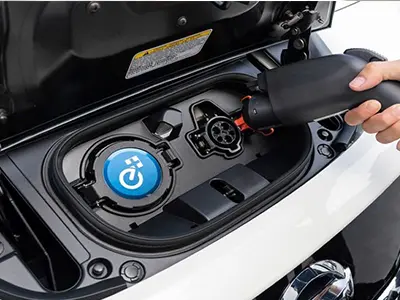
In recent years, the idea of full electrification seemed more than just a trend — it was perceived as an almost inevitable future. One after another, manufacturers announced ambitious plans, new factories were built, subsidies and quotas were introduced, cities adapted to the charging infrastructure. But the beginning of 2025 unexpectedly cooled this enthusiasm. According to the latest data from analysts Bloomberg NEF and JATO Dynamics, global sales of electric vehicles grew by only 6.2% in the first quarter, which contrasts with previous double-digit growth rates. The reasons are not only market saturation: battery prices have risen, the construction of charging stations is stalling, and drivers are starting to tire of the restrictions associated with "pure" EVs, especially in cold regions and rural areas.
A characteristic change occurred in China, where for the first time in three years Tesla lost its leadership in the local market — it was overtaken by BYD, which is betting on more affordable hybrids and fully localized production. The trend is similar in Europe: in France and Germany, there is growing interest in returning to diesel and hybrid systems, especially among companies operating commercial vehicle fleets. For them, abandoning electric traction still seems too risky - both in terms of money and convenience.
The focus has shifted. Hybrids and alternative solutions are displacing monoelectric designs. Japanese automakers such as Toyota, Honda and Mazda are acting in their own pragmatic way - they are not rushing to rush into a full transition, they are carefully increasing the production of hybrids. For example, Toyota recently openly announced that by 2026, more than half of the cars it produces will run on mixed installations. The company emphasized that a reasonable and sustainable transition is more important than a fashionable race. Meanwhile, Hyundai and BMW are increasing investments in hydrogen technologies - they are betting on those regions where charging stations are rare, and hydrogen is becoming a very real alternative.
Meanwhile, prices for new cars continue to rise. In the US, the average cost of a passenger car has exceeded $49,000, in Europe it is close to €42,000. This is influenced not only by logistics and inflation, but also by the rise in the cost of components: lithium, cobalt, graphite - all this directly affects the price of the final product. Interestingly, it is against this background that the secondary market began to breathe deeply. The demand for reliable, albeit not new cars, is only increasing. Models from 2015-2020 are especially in demand - still fresh, but already time-tested and without technical "teething problems".
Now, in the conditions of market turbulence, services that allow you to quickly and without bureaucracy get rid of a car are becoming increasingly relevant. Especially if we are talking about an old diesel or gasoline car, which does not always fit into the new environmental standards of large cities. People, tired of buyers' expectations or service station refusals, are increasingly turning to direct buyouts. For example, car buyback in Kyiv has long ceased to be "exotic" - it is a practical solution, especially in a metropolis, where time and convenience are more important than conditional profit. Companies like Shelby offer quick calculation, inspection and legal registration without wasting time and nerves, and this is already an important factor in an unstable economy.
What does all this mean for drivers? Perhaps, you should not chase ultra-modern technologies and expect a miracle from the battery. In the conditions of rising prices, unstable logistics and uncertain standards, the smart choice is flexibility. Hybrid, diesel, economical gasoline, hydrogen or just a reliable used car - each driver has his own answer. But one thing is obvious: the secondary market is back in the game, and now it is becoming a full-fledged participant in the automotive evolution, and not just a place for "recycling" old stuff. And this is perhaps the most honest news for a Ukrainian car enthusiast in 2025.

